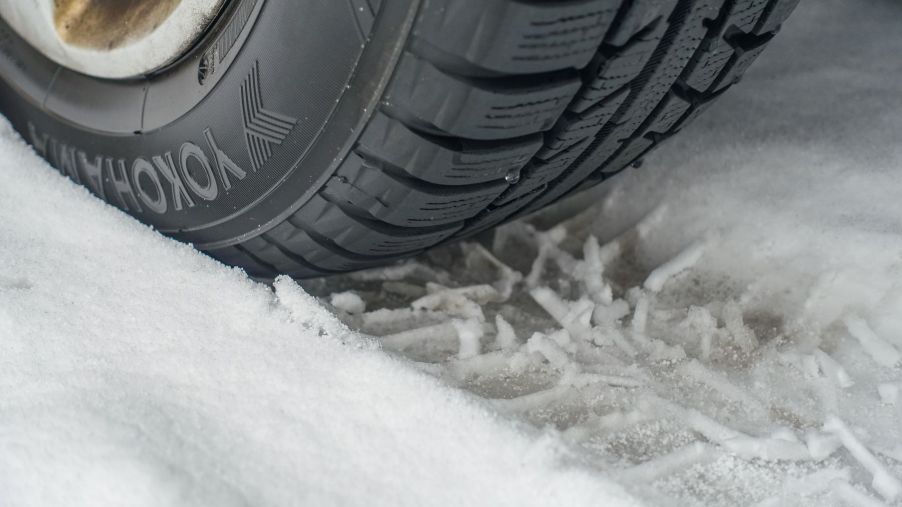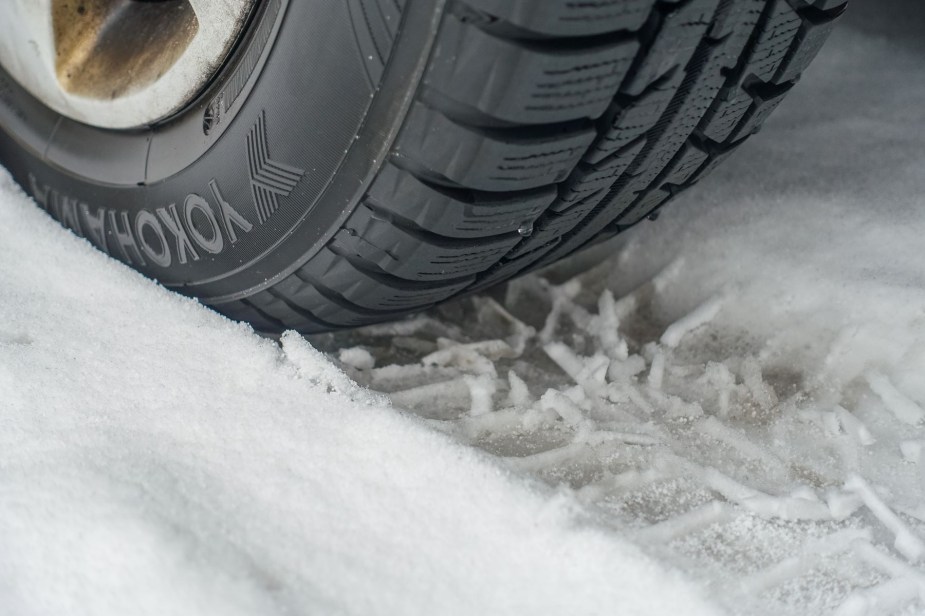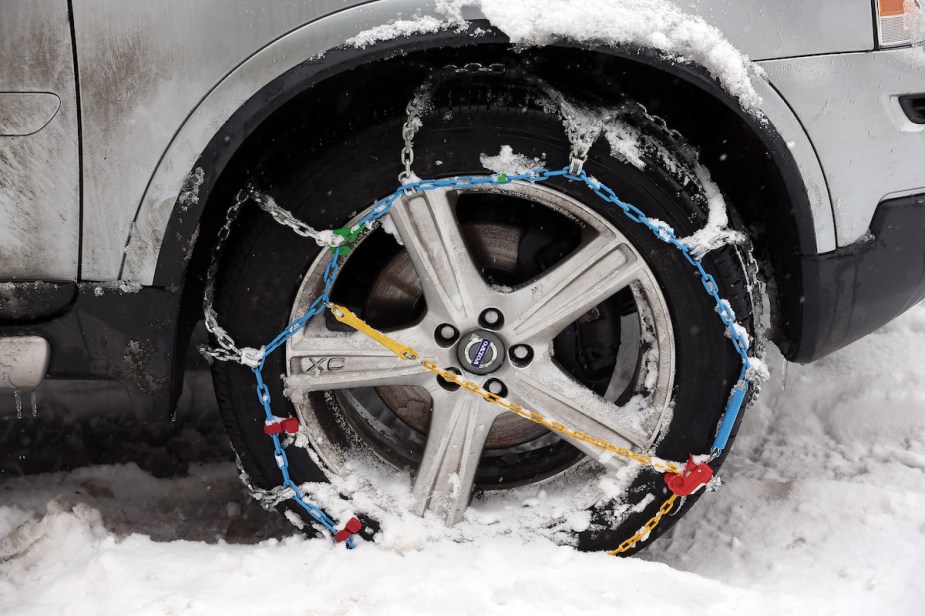
Can My Car’s Tires Freeze to the Ground?
For 2023, Punxsutawney Phil the groundhog predicted six more weeks of winter today. As a result, we’re in it for the long haul, and the United States is swirling with winter weather and snowstorms. One less talked-about problem caused by cold weather is tires freezing to the ground. Whether or not you realize it, parking your car in one place for an extended period often leads to the tires freezing. When you first pull away, you might have to accelerate more than usual or hear a loud sound when you first start moving. Your tires can freeze to the ground in cold weather, and it’s more complicated than you think.
Your car’s tires can freeze to the ground

According to We Try Tires, tires can freeze to the ground anytime the temperature is under roughly 20 degrees Fahrenheit. Although the rubber itself can’t physically freeze, extreme temperatures will undoubtedly cause them to get stuck in place. When low enough, the temperature will cause the water or moisture in the ground to freeze the tire where it lies. As a result, the tires will have no traction to the ground, and moving from the parked position can be challenging.
If you drive every day, the risk is less likely. Although with cold enough temperatures, tires can freeze overnight, it’s much more common with cars parked in one position for a long time. Driving your car or adjusting the parked position can often prevent the rubber from getting stuck. However, it’s more than just the cold that causes frozen tires.
What else causes tires to freeze?

WTT says older tires can freeze in place more quickly than recently replaced ones. As they age, the rubber becomes less flexible and more likely to crack and freeze. Additionally, as tires wear, the lack of treads reduces traction, which can also contribute. Next, a more prominent cause is wet tires. If it rains or you drive through puddle-covered roads, then it gets freezing cold overnight; wet tires will freeze. It’s difficult to dry off your tires completely, but it might be worthwhile if it prevents you from getting stuck the following day.
Does cold weather damage tires?
Although freezing tires is inconvenient, drivers can usually pull away with the problem solved. However, some more fragile tires may take damage from the cold weather. Additionally, freezing isn’t the only thing that will cause problems in the cold winter weather. As with most materials, the cold makes rubber hard and brittle, which leads to cracks, leaks, reduced traction, or sometimes even a blowout.
Next, cold weather causes tires to lose their air pressure. Moreover, the air inside the tires becomes denser and takes up less space. The result is a loss of air pressure which can lead to uneven wear, flattening (if left unchecked too long), and more. Lastly, summer tires have grooves that can become stiff because of the cold. The result is a loss of traction, which makes driving on icy roads more dangerous than it already is.
How to thaw a tire frozen to the ground
Now that you know your car’s tires can freeze to the ground, it’s good to know what to do about it. The first and easiest thing to do is pour some warm water over the tire. However, too much hot water can damage the tire. Make sure it’s only lukewarm water, warmer than ice, and pour it over repeatedly until the tires can easily move from the spot they’re cemented on the ground.
To prevent tire-freezing from happening in the first place, there are a few options. Preventive measures include parking indoors, consistently checking tire pressure, using winter tires, inspecting tire treads regularly, and buying tire covers or another layer of protection.
Car tires can and will freeze
In conclusion, your car’s tires can freeze to the ground. Most of the time, the tires will be stuck in place for a few seconds until you accelerate. However, cold weather can damage the rubber long-term or cause other problems. We’d recommend moving the car around frequently to prevent flat spots from sticking to the ground. Cold weather will reduce air pressure, freeze the rubber when wet, and can even cause cracks and leaks in older tires. For most car owners, driving daily is the best preventative. But for others, some more precautions might be necessary.



